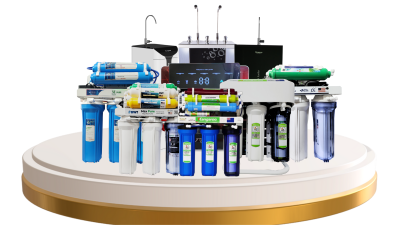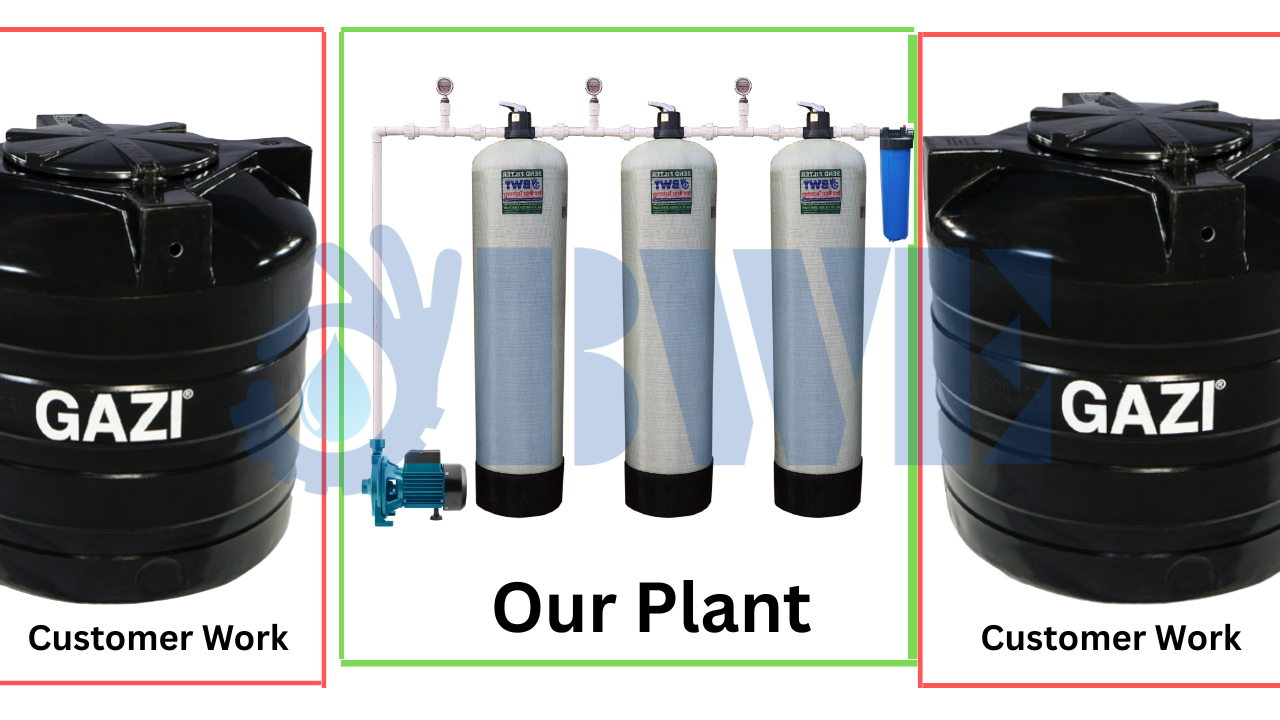Water Purifiers in Bangladesh: The Ultimate Guide to Safe Drinking Water

Access to clean drinking water is essential for health and well-being. In Bangladesh, water sources can be contaminated with various pollutants, making water purification a necessity. This blog will explore the importance of water purifiers and the best purification methods available today, especially in the context of Bangladesh.
Why is Water Purification Important in Bangladesh?
Bangladesh faces numerous water contamination challenges, including the presence of harmful pathogens, arsenic, and industrial pollutants. The combination of these elements makes untreated water unsafe for consumption. Access to clean water can help prevent diseases such as cholera, diarrhea, and dysentery, improving overall health and quality of life.
Common Contaminants in Water
- Bacteria and Viruses: Disease-causing organisms from untreated sewage and industrial waste.
- Heavy Metals: Arsenic, lead, and mercury contamination from groundwater.
- Industrial Pollutants: Chemicals from factories seep into water sources.
- Pesticides: Agricultural runoff introduces toxic chemicals into rivers and streams.
- Excessive Iron: Common in groundwater, especially in rural areas.
Types of Water Purifiers
There are several water purification technologies available, each offering distinct advantages depending on water quality and household needs.
1. Reverse Osmosis (RO) Purifiers
RO systems are highly efficient at removing dissolved salts, bacteria, and harmful chemicals. They are ideal for areas where groundwater is contaminated with arsenic or high levels of dissolved solids. RO systems work by forcing water through a semi-permeable membrane, leaving contaminants behind.
Advantages:
- Removes 90-99% of contaminants.
- Improves taste by eliminating dissolved minerals.
Challenges:
- High water wastage during the purification process.
- Requires electricity to operate.
2. Ultraviolet (UV) Purifiers
UV purifiers use ultraviolet rays to kill bacteria, viruses, and other microorganisms in water. They are effective in urban areas where the water supply is treated but may still carry biological contaminants. However, UV purifiers do not remove dissolved solids or chemicals, so pairing them with another purification system may be necessary.
Advantages:
- Chemical-free method.
- Effective against pathogens.
Challenges:
- Does not remove dissolved salts or chemicals.
- Requires a clear water supply to work efficiently.
3. Ultrafiltration (UF) Purifiers
UF purifiers use hollow fibers of a membrane to block bacteria, viruses, and particles in water. UF is similar to RO but does not remove dissolved salts. UF purifiers do not require electricity, making them ideal for rural areas where power supply is unreliable.
Advantages:
- Removes bacteria and viruses.
- No electricity required.
Challenges:
- Does not filter dissolved salts or chemicals.
4. Activated Carbon Filters
Activated carbon filters are excellent at removing chlorine, bad taste, and odor from water. They are commonly used in combination with other purification systems like RO or UV for enhanced water quality. These filters work by adsorbing contaminants onto their surface, making the water taste better.
Advantages:
- Improves taste and removes odors.
- Cost-effective.
Challenges:
- Needs regular replacement.
- Limited effectiveness against biological contaminants.
5. Sediment Filters
Sediment filters remove suspended particles such as dirt, sand, and rust from water. These filters are often the first stage in a multi-stage water purification system and help protect more sensitive purification components like RO membranes or UV lights.
Advantages:
- Extends the life of other filters.
- Affordable and easy to maintain.
Challenges:
- Does not remove pathogens or chemicals.
6. Iron Removal Filters
Groundwater in many parts of Bangladesh contains high levels of iron. Iron removal filters are essential for removing iron and preventing staining of clothes and appliances. These filters are particularly useful in rural areas dependent on tube wells for their water supply.
Advantages:
- Removes iron efficiently.
Challenges:
- Needs regular backwashing to maintain efficiency.
Choosing the Right Water Purifier for Your Needs
Selecting the right water purifier depends on the quality of the water supply and the contaminants present. For areas with high levels of dissolved salts and chemical contaminants, an RO system is recommended. For biologically contaminated water, UV or UF purifiers can be effective. In rural areas, non-electric UF purifiers or iron removal filters are more suitable.
Maintenance Tips for Water Purifiers
- Regular Filter Changes: Filters must be replaced periodically to ensure effective performance. This includes sediment, carbon, and RO membranes.
- Cleaning the Storage Tank: Ensure the storage tank is cleaned regularly to prevent microbial growth.
- Annual Servicing: Most water purifiers require an annual maintenance check to replace worn-out parts and ensure optimal performance.
- Monitor Water Quality: Even with a purifier, it’s essential to test your water periodically to ensure it remains safe for drinking.
Advantages of Installing a Water Purifier
- Health Benefits: Clean water reduces the risk of waterborne diseases, promoting better health for your family.
- Improved Taste: Water free from contaminants tastes better and is more pleasant to drink.
- Cost-Effective: Over time, investing in a water purifier is more economical than buying bottled water.
- Environmental Impact: Using a purifier reduces plastic waste from bottled water consumption.
Why Choose Best Water BD?
At Best Water BD, we provide top-quality water purification solutions tailored to Bangladesh’s unique challenges. Our extensive range of water purifiers includes RO, UV, UF, and iron removal systems that ensure safe and clean drinking water for your home or business. We prioritize customer satisfaction, offering expert installation services, and after-sales support.
Conclusion
In Bangladesh, water purification is not just a luxury—it’s a necessity. With the right purifier, you can ensure safe, clean water for your family. Whether you live in an urban or rural area, understanding the different water purification methods will help you make an informed decision. Best Water BD is committed to providing reliable water purification solutions to address the unique challenges faced by Bangladesh’s water supply.
For more information, visit our website Best Water BD, and explore our wide range of products.







